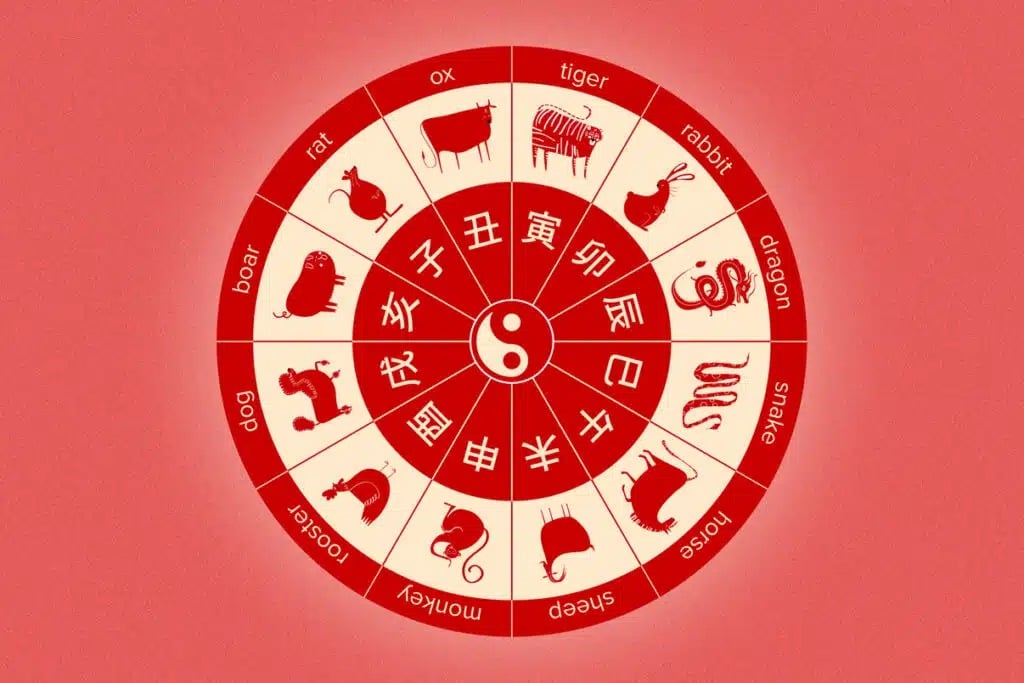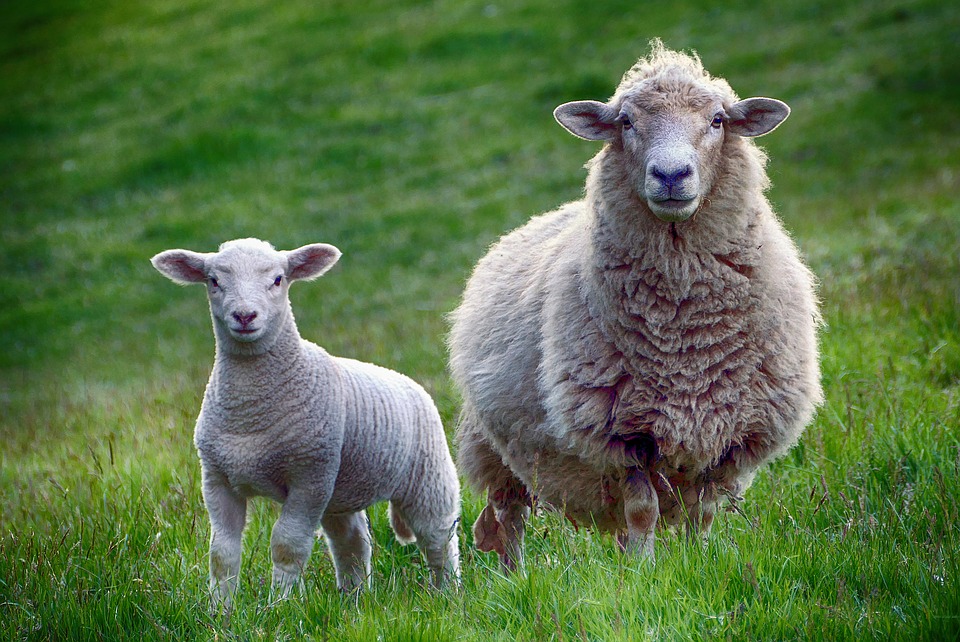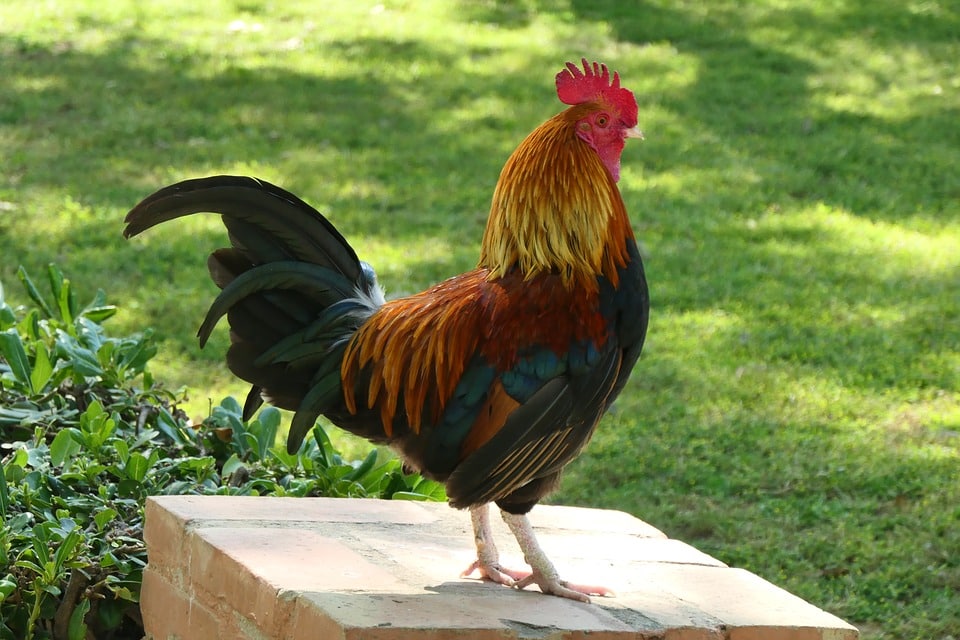Zodiac Signs in Japanese: What Your Japanese Birth Year, Birthdate and Blood Type Say About You

If you’re familiar with the Japanese culture and language, you may have already heard of 干支 (えと) — the 12-animal zodiac. In the original myth, a supreme Chinese god hosted a race for animals, and the top 12 winners became the zodiac. In order from first to last, they were: Rat, Ox, Tiger, Rabbit, Dragon, Snake, Horse, Sheep, Monkey, Rooster, Dog and Boar.
This zodiac is prevalent in many East Asian cultures, and many people are well aware of their animal sign and the current “animal year.” So let’s talk about the zodiac signs in Japanese (both in Eastern and Western astrology), Japanese blood types, Japanese imperial reign eras and how you can use all of these to up your Japanese fluency.
Download: This blog post is available as a convenient and portable PDF that you can take anywhere. Click here to get a copy. (Download)
What Is the Japanese Zodiac?
The Japanese zodiac has its roots in China, where the zodiac was a part of traditional Chinese astrology. Originally, it functioned as a timekeeping system, as well as a variety of other functions.
The 12 animals of the ancient zodiac were also called the 十二支 (じゅうにし) — 12 Earthly Branches. These were matched with the 十干 (じっかん) — 10 Heavenly Stems, which are the five natural elements of Earth, Wood, Water, Fire and Metal in both their yin and yang forces. Together, the Earthly Branches and the Heavenly Stems created a functional calendar.
The Japanese zodiac differs from the original Chinese one in a few notable ways:
- The Boar replaced the Pig.
- The Sheep replaced the Goat (or Ram).
- The solar (Gregorian) calendar replaced the original lunar calendar used in traditional Chinese timekeeping.
By the way, with a calendar or calculator, you can easily find out your Japanese zodiac sign.
The 12 Zodiac Signs in Japanese
Rat: 子 (ね)
Animal kanji: 鼠 (ねずみ)
Birth years: 1924, 1936, 1948, 1960, 1972, 1984, 1996, 2008, 2020
Positive attributes: outgoing, energetic, resourceful
Negative attributes: rude, greedy
As number one in the zodiac, the Rat has some outstanding qualities. According to the myth, the clever Rat hitched a ride on the Ox and leapt over the finish line to become the first place winner.
The Rat embodies luck and success, and so a Rat year is said to be a great one for fresh starts. While a Rat person can be extremely capable and intelligent, they may also be hard to read and have a miserly streak.
Ox: 丑 (うし)
Animal kanji: 牛 (うし)
Birth years: 1925, 1937, 1949, 1961, 1973, 1985, 1997, 2009, 2021
Positive attributes: hardworking, earnest, trustworthy
Negative attributes: narrow-minded, constrained
With Asia’s heavily agrarian history, it’s no surprise that many of its cultures find significance in the ever-useful Ox.
The Ox spurns laziness and understands the power of combining patience with hard work. However, Ox people are also quite stubborn and want to remain on the path they’ve chosen, and so it may be hard to persuade them to change their mind or consider an alternative point of view.
Tiger: 寅 (とら)
Animal kanji: 虎 (とら)
Birth years: 1926, 1938, 1950, 1962, 1974, 1986, 1998, 2010, 2022
Positive attributes: brave, confident, passionate
Negative attributes: temperamental, impulsive
The ferocious Tiger is a highly revered animal in East Asian culture, often depicted as a creature rivaling or just secondary to the mighty Dragon.
A Tiger person will get things done with vigor and wit. They aren’t afraid to show how much they care for others, and so have great potential as leaders. However, they tend to have “up-and-down” and unpredictable personalities that can cause issues in their life and relationships.
Rabbit: 卯 (う)
Animal kanji: 兎 (うさぎ)
Birth years: 1927, 1939, 1951, 1963, 1975, 1987, 1999, 2011, 2023
Positive attributes: elegant, talented, tactful
Negative attributes: gullible, bendable will
Those born in the Year of the Rabbit can often be described as admirable and progress-driven people.
You could certainly trust a Rabbit person to carry out a task with poise. On the other hand, they could be easily deceived or find themselves falling victim to unscrupulous types.
Dragon: 辰 (たつ)
Animal kanji: 竜 (りゅう)
Birth years: 1928, 1940, 1952, 1964, 1976, 1988, 2000, 2012, 2024
Positive attributes: steadfast, noble, brave
Negative attributes: short-tempered, uncontrollable
The Dragon is an incredibly important creature in Asian mythology that embodies otherworldly grace and strength. In fact, according to the origin myth of the zodiac, the Dragon did not finish first because it chose to help out some of the others during the race instead.
A Dragon person is likely to be charismatic, unique and inspiring due to their unwavering nature. However, as is typical of the giant lizards of lore, they’re prone to losing control of their moods and decisions.
Snake: 巳 (み)
Animal kanji: 蛇 (へび)
Birth years: 1929, 1941, 1953, 1965, 1977, 1989, 2001, 2013, 2025
Positive attributes: observant, wise, persistent
Negative attributes: indifferent, negatively introverted
While Western culture often gives snakes a bad rap, Asian culture is much kinder on these sleek, elegant creatures. In the myth, the Snake realized its physical shortcomings and hitched a ride on the Horse, remaining unseen until the finish line.
Snake individuals are said to be intelligent and thoughtful, as well as particularly suave with money matters. But the Snake can also seem like a cold individual, especially since they aren’t inclined to share their opinions and true feelings with others.
Horse: 午 (うま)
Animal kanji: 馬 (うま)
Birth years: 1930, 1942, 1954, 1966, 1978, 1990, 2002, 2014, 2026
Positive attributes: sociable, charming, determined
Negative attributes: impatient, inconsiderate
Much like their animal namesake, a Horse person is spirited and loves to be on the move—whether on a personal project or a new social trend. They ooze enough charisma to win them hordes of admirers.
On the flip side, the Horse can get bored easily and become quickly demotivated when things don’t pan out their way. Their sociable nature can also come across as intrusiveness at times.
Sheep: 未 (ひつじ)
Animal kanji: 羊 (ひつじ)
Birth years: 1931, 1943, 1955, 1967, 1979, 1991, 2003, 2015, 2027
Positive attributes: creative, kind, considerate, passionate
Negative attributes: indecisive, overly meek
Interestingly, the Japanese zodiac often considers the Sheep as least compatible with the Ox, despite their animal counterparts both being four-legged agricultural livestock.
Like the animal, the Sheep is said to be peace-loving and group-focused, as well as artistically gifted. But while obedience is a desirable trait in the actual animal, a Sheep person may be perceived as overly uncertain about themselves.
Monkey: 申 (さる)
Animal kanji: 猿 (さる)
Birth years: 1932, 1944, 1956, 1968, 1980, 1992, 2004, 2016, 2028
Positive attributes: clever, versatile, resourceful
Negative attributes: manipulative, short-sighted
East Asian cultures have a special reverence for monkeys. They’re often considered smart and smooth—creatures who think as fast as they move.
The zodiac Monkey is one of the most likely of the 12 zodiac animals to get out of a pinch as needed. However, the Monkey can also be arrogant and erratic, and doesn’t always consider the consequences of their actions. A Monkey is particularly compatible with other clever members of the zodiac, including the Rat and the Snake.
Rooster: 酉 (とり)
Animal kanji: 鶏 (とり)
Birth years: 1933, 1945, 1957, 1969, 1981, 1993, 2005, 2017, 2029
Positive attributes: diligent, devoted, independent
Negative attributes: overambitious, aggressive
The Japanese word for rooster is technically 雄鶏 (おんどり), but the zodiac form may simply use 鶏 (にわとり) — chicken. More frequently, the Japanese zodiac refers to the rooster as 酉 (とり), which sounds like a reference to an unspecified bird.
A Rooster individual enjoys being busy, takes pride in their efforts and doesn’t back down from challenges or speaking their mind. They may get a bit too confident or ambitious, however, which can leave them crushingly disappointed if they fail to achieve their goal.
Dog: 戌 (いぬ)
Animal kanji: 犬 (いぬ)
Birth years: 1934, 1946, 1958, 1970, 1982, 1994, 2006, 2018, 2030
Positive attributes: loyal, honest, down-to-earth
Negative attributes: stubborn, overly critical
Loyalty is the hallmark of man’s best friend, and the zodiac Dog shares this trait. The Dog is often said to be the most faithful and dutiful of the zodiac members.
A Dog individual may be cautious when forming relationships, but once they manage to create a bond, they will cherish it to the best of their ability. The Dog may struggle with giving or taking criticism, and their occasional obstinacy can make them difficult to deal with at times.
Boar: 亥 (い)
Animal kanji: 猪 (いのしし)
Birth years: 1935, 1947, 1959, 1971, 1983, 1995, 2007, 2019, 2031
Positive attributes: self-empowered, honest, humble
Negative attributes: short-tempered, naïve
Some variations of the zodiac myth say the Boar was last due to the creature’s inherent laziness. Others say it was due to overcompensation—in one version, the Boar literally ran past the overseeing god and had to circle back.
A Boar person possesses admirable inner strength, vitality and honesty—all qualities that make for good, sincere companions. They can be quick to anger and immovable in their judgments, though, particularly if you find yourself on their bad side.
Japanese Horoscopes
Western astrological zodiac signs—known as 星座 (せいざ)—are also included in Japanese horoscope readings. The respective dates and characteristics of each sign remain the same–it’s really only the names that have changed.
Aries: 牡羊座 (おひつじざ)
Sign of the Ram
- Dates: March 21—April 19
- Characteristics: Optimistic, bold, genuine, impatient, reckless
Taurus: 牡牛座 (おうしざ)
Sign of the Ox
- Dates: April 20—May 20
- Characteristics: Pragmatic, hardworking, steadfast, stubborn, brooding
Gemini: 双子座 (ふたござ)
Sign of the Twins
- Dates: May 21—June 20
- Characteristics: Creative, curious, adaptable, indecisive, anxious
Cancer: 蟹座 (かにざ)
Sign of the Crab
- Dates: June 21—July 22
- Characteristics: Caring, loyal, protective, suspicious, sensitive
Leo: 獅子座 (ししざ)
Sign of the Lion
- Dates: July 23—August 22
- Characteristics: Passionate, friendly, generous, arrogant, overbearing
Virgo: 乙女座 (おとめざ)
Sign of the Virgin
- Dates: August 23—September 22
- Characteristics: Kind, reliable, humble, critical, uptight
Libra: 天秤座 (てんびんざ)
Sign of the Scales
- Dates: September 23—October 22
- Characteristics: Diplomatic, empathetic, well-tempered, irresponsible, begrudging
Scorpio: 蠍座 (さそりざ)
Sign of the Scorpion
- Dates: October 23—November 21
- Characteristics: Brave, ambitious, honest, jealous, controlling
Sagittarius: 射手座 (いてざ)
Sign of the Archer
- Dates: November 22—December 21
- Characteristics: Adventurous, intelligent, enthusiastic, impatient, disorganized
Capricorn: 山羊座 (やぎざ)
Sign of the Goat
- Dates: December 22—January 19
- Characteristics: Tenacious, grounded, responsible, hard to please, pessimistic
Aquarius: 水瓶座 (みずがめざ)
Sign of the Water Bearer
- Dates: January 20—February 18
- Characteristics: Resourceful, fair, independent, standoffish, rebellious
Pisces: 魚座 (うおざ)
Sign of the Fish
- Dates: February 19—March 20
- Characteristics: Thoughtful, artistic, intuitive, low self-esteem, lazy
Japanese Blood Type Personalities
Genetic blood types, known as 血液型 (けつえきがた ) in Japanese, are also considered personality descriptors in Japan, as well as other East Asian countries. Granted, the system isn’t considered an exact science, but it does pop up in social contexts at times.
The majority of Japanese natives are Type A blood type, while Type AB is the rarest within the population. There are recommended matching systems between different types as well. Here are some very general characteristics of each blood type:
- Type A: A型 (えーがた) — diligent, organized, clever, perfectionist, anxious, sensitive
- Type B: B型 (びーがた) — thoughtful, passionate, creative, selfish, stubborn, impatient
- Type O: O型 (おーがた) — confident, outgoing, generous, condescending, insensitive, jealous
- Type AB: AB型 (えーびーがた) — reliable, practical, adaptable, indecisive, erratic, critical
Japanese Eras and Birth Years
There exists a unique Japanese era calendar based on the reigns of the country’s emperors. The era is named after the emperor, and years are numbered consecutively until a new ruler presides, and then you start counting from Year 1 again. This system is known as 元号 (げんごう).
The 1900s to 2000s include these monarchs:
- Emperor Taishō: 大正 (たいしょう) — July 30, 1912 to December 25, 1926
- Emperor Shōwa: 昭和 (しょうわ) — December 25, 1926 to January 7, 1989
- Emperor Heisei: 平成 (へいせい) — January 8, 1989 to April 30, 2019
- Emperor Reiwa: 令和 (れいわ) — May 1, 2019 to present
If you’re referring to an era, you’d append the term 時代 (じだい) to the emperor’s reign name. For example, the Taishō Era would be the 大正時代 (たいしょうじだい).
Under this system, here are some examples of how your birth years would be converted:
- Birth year 1980 = Shōwa 55 (as 1980 is the 55th year of Emperor Shōwa’s reign)
- Birth year 1991 = Heisei 3 (three years after the Heisei era began in 1989)
- Birth year 2020 = Reiwa 2 (two years after Emperor Reiwa’s reign started in 2019)
This system is still used in many Japanese contexts, ranging from casual encounters to important political affairs. However, there’s an ongoing debate regarding its overall relevance in recent times.
Why Learn the Japanese Zodiac?
Of course, learning the zodiac signs is a fun way to learn a few Japanese words for animals. But there’s a bit more to it than that:
- They help you understand superstitions in Japanese culture. For example, it was believed that the year 1966 saw a staggering decline in Japan’s childbirth rate due to the “curse” of the 丙午 (ひのえうま) — Fire Horse.
- The zodiac continues to be a form of Japanese fortune telling. Just like believers in the Western zodiac system, those who believe in the Japanese zodiac rely on their horoscopes for information and reassurance regarding their destiny, relationships, etc.
- Notable zodiac-related ceremonies are still practiced today. For instance, the 還暦 (かんれき) ceremony is held when one reaches 60 years of age, as that marks the end of one zodiac cycle and the beginning of a “new cycle” in that individual’s life.
- The Japanese zodiac remains culturally prevalent. Some shrines in Japan are dedicated to a specific zodiac animal. Visitors can write wishes on prayer boards called 絵馬
(えま), which often depict the animal of significance. You’ll also find mentions of the zodiac in TV shows, movies and other native Japanese videos like the kind you’ll find on FluentU (where you’ll also find plenty of other vocabulary and cultural tidbits).
FluentU takes authentic videos—like music videos, movie trailers, news and inspiring talks—and turns them into personalized language learning lessons.
You can try FluentU for free for 2 weeks. Check out the website or download the iOS app or Android app.
P.S. Click here to take advantage of our current sale! (Expires at the end of this month.)

- Many Japanese people pay special attention to the zodiac around New Year’s. If you travel to Japan around the end of the year, you’ll see an abundance of items depicting the next year’s animal.
So, how much do you resonate with your zodiac animal?
Keep the Japanese zodiac in mind around New Year’s, too, to see what’s in store for the next year!
And One More Thing...
If you love learning Japanese with authentic materials, then I should also tell you more about FluentU.
FluentU naturally and gradually eases you into learning Japanese language and culture. You'll learn real Japanese as it's spoken in real life.
FluentU has a broad range of contemporary videos as you'll see below:

FluentU makes these native Japanese videos approachable through interactive transcripts. Tap on any word to look it up instantly.

All definitions have multiple examples, and they're written for Japanese learners like you. Tap to add words you'd like to review to a vocab list.

And FluentU has a learn mode which turns every video into a language learning lesson. You can always swipe left or right to see more examples.

The best part? FluentU keeps track of your vocabulary, and gives you extra practice with difficult words. It'll even remind you when it’s time to review what you’ve learned. You'll have a 100% personalized experience.
Start using the FluentU website on your computer or tablet or, better yet, download the FluentU app from the iTunes or Google Play store. Click here to take advantage of our current sale! (Expires at the end of this month.)






















